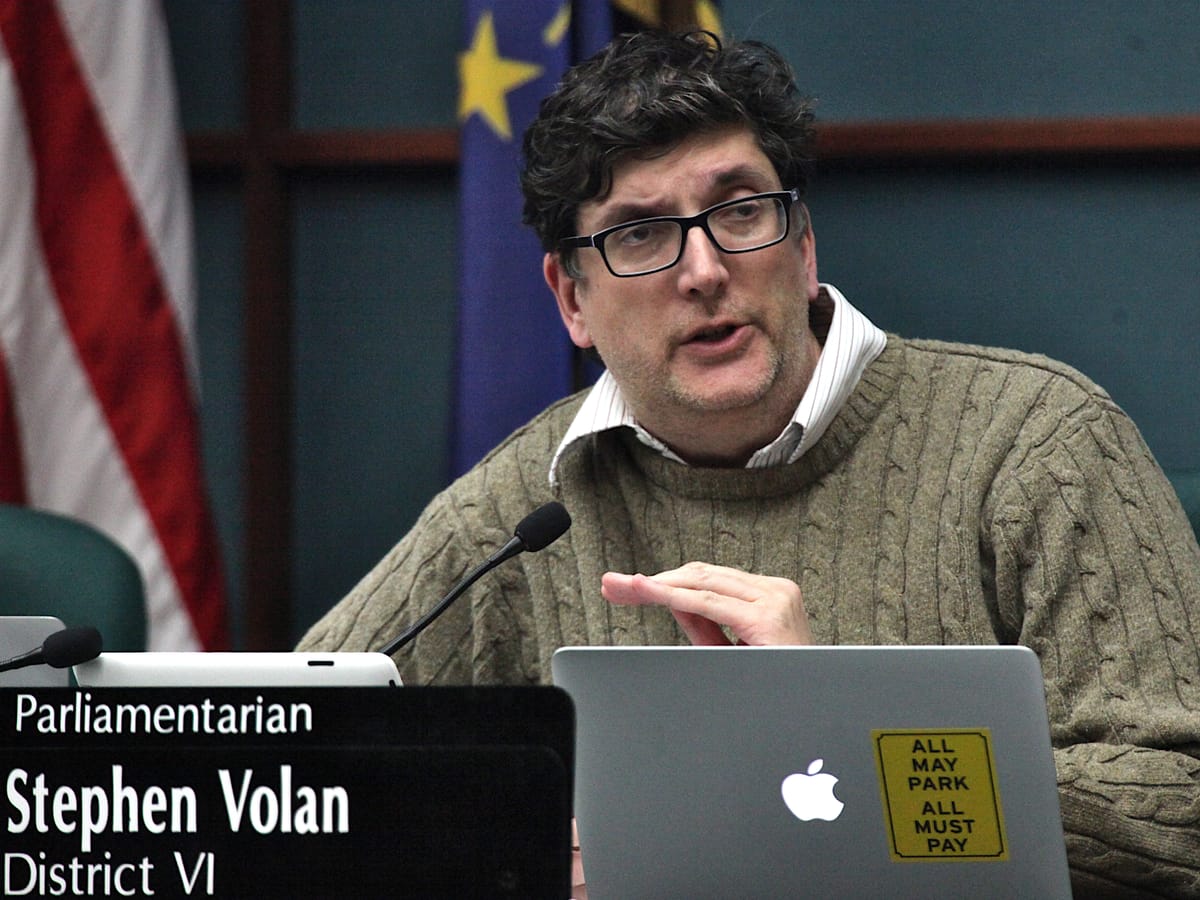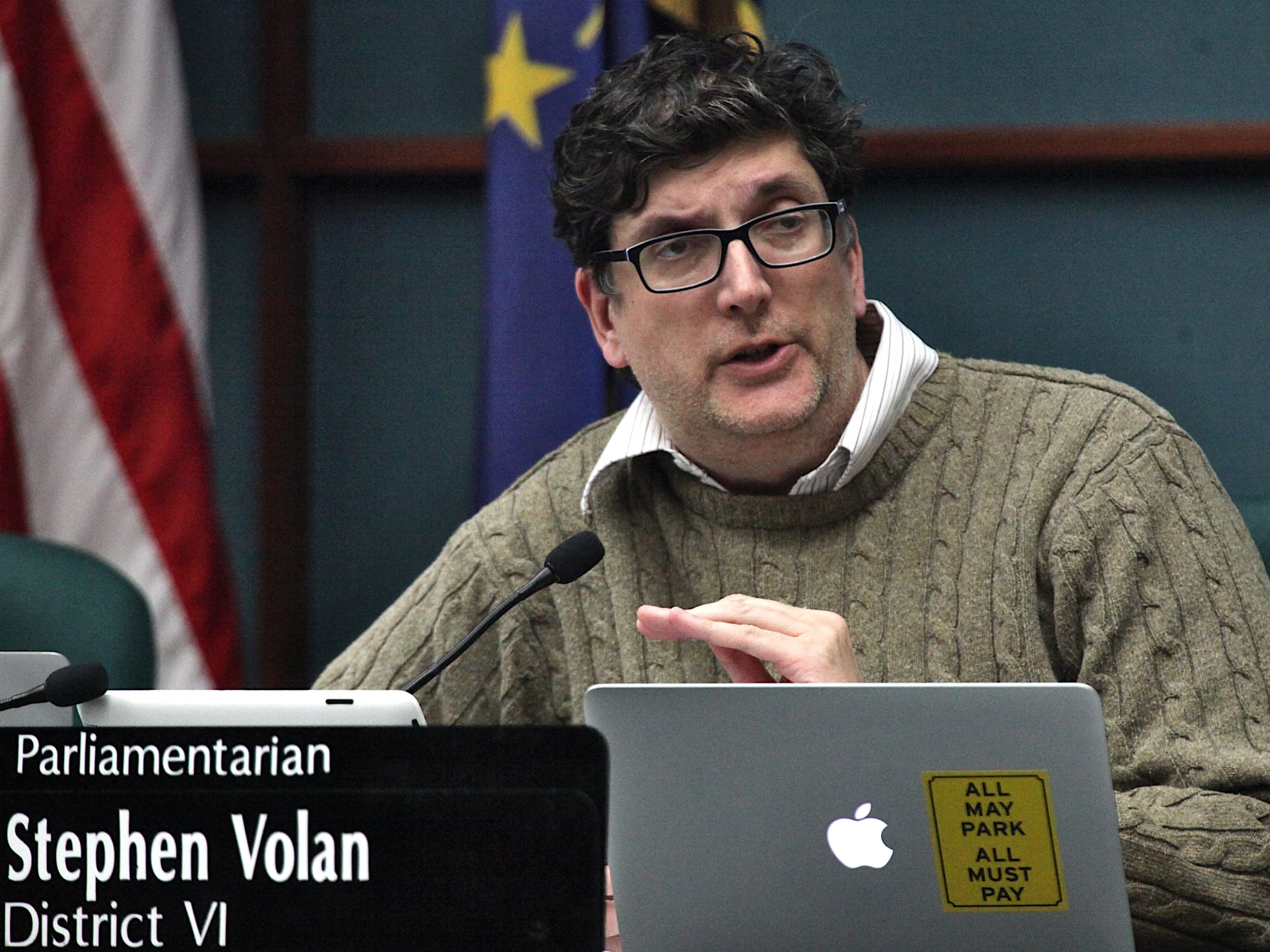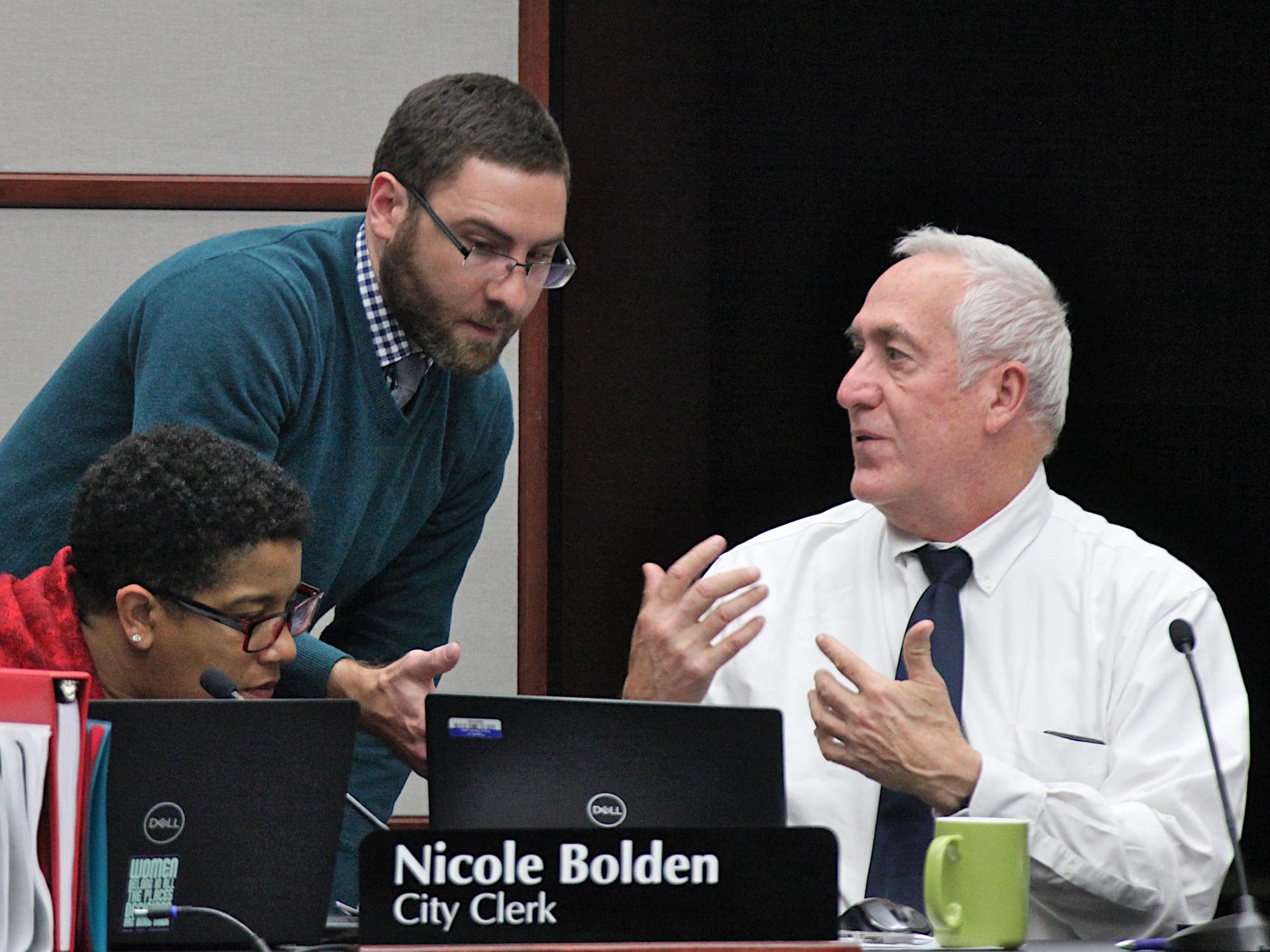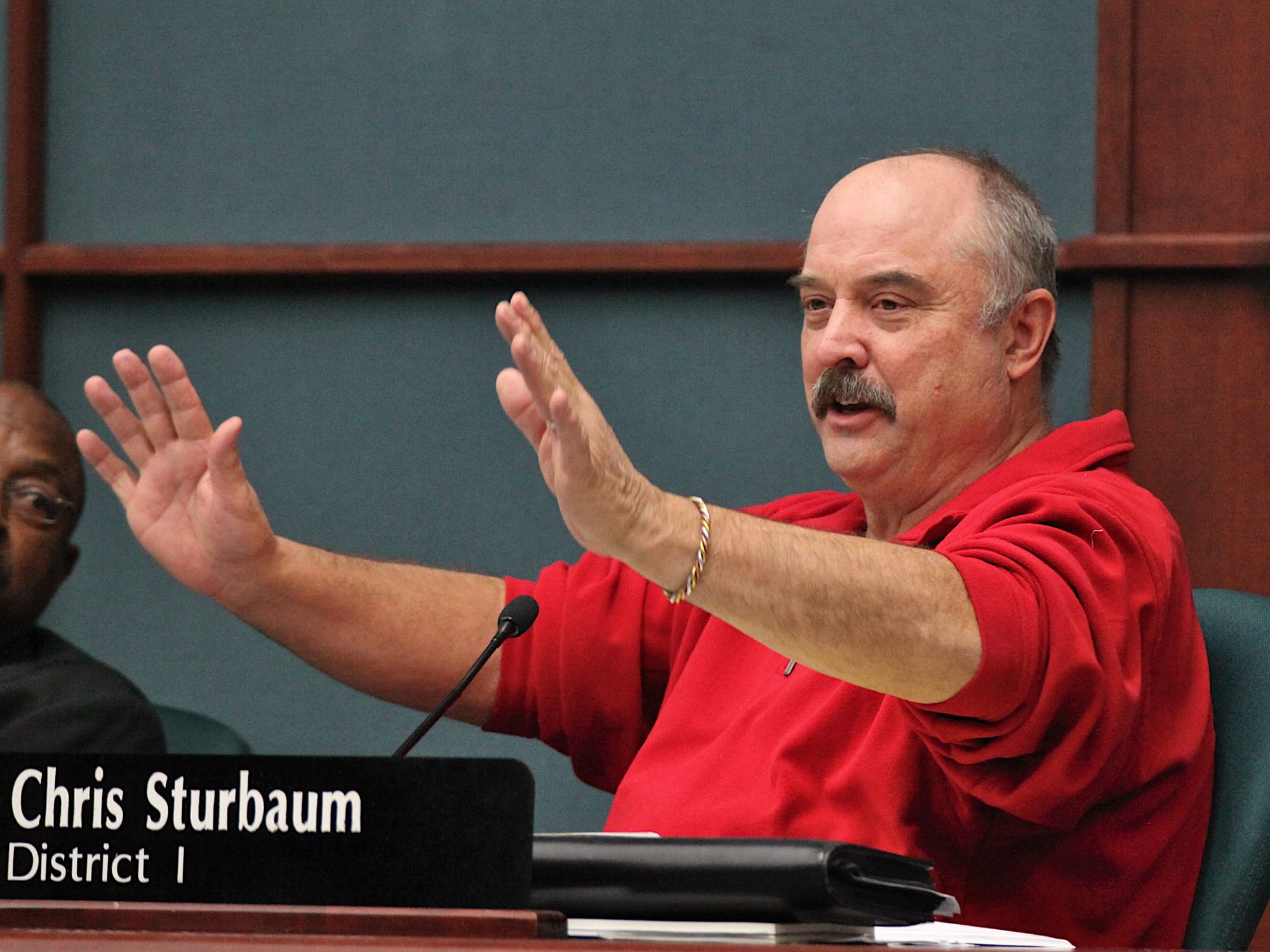UDO update: Parliamentary prickliness as Bloomington stands pat on parking minimums




On Tuesday night, Bloomington’s city council dispatched about a dozen amendments to its draft unified development ordinance, setting itself up for a realistic shot at handling all the amendments released so far by the end of its Wednesday session.
[For a linked list of all those amendments see The Beacon’s previous coverage.]
Several amendments were adopted by unanimous votes, including one that removes an option for payment-in-lieu of providing income-restricted housing onsite, as part of the public benefit for a planned unit development.
The idea is that developers should incorporate affordable housing into a project, instead of donating a sum to the city’s housing development fund, which the city could then use to build affordable housing elsewhere.
Rejected with support only from its sponsor, councilmember Chris Sturbaum, was an amendment that would have required new buildings to “step back” not just from those with ratings of “outstanding” and “notable,” but also those with ratings of “contributing.”
The most contentious issue of the night was one involving a pair of conflicting amendments on parking minimums, the first sponsored by Sturbaum and the second by councilmember Steve Volan.
Neither amendment passed. Volan’s amendment might have had a chance if the council had been at its full complement of nine members, but failed on a 4–4 tie.
A procedural quarrel over parliamentary matters stemming from the tie vote did not result in a changed outcome.
The question was whether to require developers to provide some minimum amount of onsite parking for residents, or to allow developers to gauge the market and provide just the parking they think is adequate for attracting future tenants. The concern that drives the idea of maintaining some minimum requirements is that inadequate parking onsite will result in an abuse of the “commons” of on-street parking in surrounding neighborhoods.
Sturbaum’s amendment would have tweaked upward the minimum parking required from 0.5 spaces to 1 space per dwelling unit, for triplexes and for studio apartments, and from .5 spaces to 1 space per bedroom for student housing with 11 or more bedrooms. Volan’s amendment would have eliminated parking minimums.
Scott Robinson, assistant director of the planning and transportation department, said that staff’s recommendation was for neither amendment. The city has already been on a trajectory to reduce parking minimums, he said.
Sturbaum’s amendment was heard first and failed on a 3–5 vote. Supporting it were Sturbaum, Jim Sims and Susan Sandberg. The missing vote on the nine-member city council was due to Allison Chopra’s absence.
The vote on Volan’s amendment came out 4–4. Opposing it were Sturbaum, Sims, Sandberg and Dave Rollo.
Support from one of the four in favor came from Andy Ruff, who seemed somewhat ambivalent. He appeared persuaded by the idea that core neighborhoods would not see any impact, because triplexes had been banned there with an amendment approved the previous week.
In parliamentary terms, the prevailing side in the tie vote was the side that voted against it—it failed because it did not achieve the minimum five votes needed to pass. The council’s president Dave Rollo, who chairs the meetings, announced the result: “It’s a tie vote, so it fails.”
At that point, Volan said he wanted to change his vote from yes to no.
Volan wanted to join the prevailing side, because under the council’s rules that would give him the right later to bring back the question for reconsideration, when Chopra could be present. Volan said he thought Chopra would support the amendment.
Volan’s statement that he wanted to change his vote after-the-fact drew a comment from the council’s administrator/attorney Dan Sherman, who described a rule laid out in city code.
2.04.360 – Voting procedure.
(e) Any member may change a vote before the result is announced, and afterwards by leave of the council provided that the change will not affect the result. In no case shall a member absent when the question is put be allowed to vote after the result is announced.
If before Roll announced the result, Volan had said he wanted to change his vote, the rule would have allowed him to do that. But because Volan waited until after the announcement of the result, the rule’s conditions—that the change not affect the result and that it be “by leave of the council”—turned the question into a controversy.
Volan argued that he had the right to change his vote, because his change would not affect the outcome of the vote—it would still fail. Rollo got Volan to clarify his intent, which was eventually to achieve a change in the outcome on the legislation. For Rollo that appeared to be the key consideration.
Ruff, whose support of the amendment had appeared soft anyway, raised the specter of changing his vote on the legislation, if it did wind up being reconsidered through the procedure that Volan was contemplating. Ruff told The Beacon after the meeting that he thought the outcome should depend on the composition of the council as it was constituted that night.
After a lot of back-and-forth, the conversation settled onto the fact that Volan’s ability to change his vote depended on getting “leave of the council.”
Volan asked that he be allowed to change his vote because it would serve the interest of ensuring that the will of the majority would prevail, which he thought would be in favor of the amendment, if Chopra were present to vote on the matter.
Councilmember Isabel Piedmont-Smith, who had supported the amendment, said she felt that even if Volan could be allowed to change his vote under the letter of the rule, she did not think Volan’s intent was consistent with the spirit of the rule. She said it felt wrong to her that the procedure would be manipulated in that way.
Appearing to recognize that a roll call on the question of allowing him to change his vote would almost certainly fail, Volan withdrew his request to change his vote, and the council went on to the next item.
A raft of amendments placed on a consent agenda, which were heard and adopted as a group, helped the council’s cause to complete its consideration of the first round amendments released so far.
Not all amendments submitted by the Nov. 4 first deadline have been released. For additional amendments submitted by the Nov. 25 deadline, the council has already scheduled meetings for Dec. 10, Dec. 12 and Dec. 17, with a final vote on the amended UDO expected on Dec. 18.
Roll Call Voting Table for Nov. 19, 2019
| Topic | Sturbaum | Granger | Chopra | Rollo | Piedmont-Smith | Volan | Ruff | Sandberg | Sims |
| Revise Consent Agenda |
yes | yes | absent | yes | yes | yes | yes | yes | yes |
| Adopt Consent Agenda |
yes | yes | absent | yes | yes | yes | yes | yes | yes |
| Am 08: no pay-in-lieu PUD |
yes | yes | absent | yes | yes | yes | yes | yes | yes |
| Withdraw Am 09: define co-op |
yes | yes | absent | yes | yes | yes | yes | yes | yes |
| Am 13: dimension: standards | yes | yes | absent | yes | yes | yes | yes | yes | yes |
| Am 17: methdadone OK use | yes | yes | absent | yes | yes | yes | yes | yes | yes |
| Am 18: soil tests only with produce | yes | yes | absent | yes | yes | yes | yes | yes | yes |
| Am 19: solar panel anywhere in setback | yes | yes | absent | yes | yes | yes | yes | yes | yes |
| Am 24: floodplain approvals | yes | yes | absent | yes | yes | yes | yes | yes | yes |
| Am 25: smaller driveway widths | yes | yes | absent | yes | yes | yes | yes | yes | yes |
| Am 26: increase parking mins | yes | no | absent | no | no | no | no | yes | yes |
| Am 27: eliminate parking mins | no | yes | absent | no | yes | yes | yes | no | no |
| Amend Am 29: put glass in list | yes | yes | absent | yes | yes | yes | yes | yes | yes |
| Am 29 as amended: no primary EIFS | yes | yes | absent | yes | yes | no | yes | yes | yes |
| Am 30: step-back even for contributing | yes | no | absent | no | no | no | no | no | no |




Comments ()